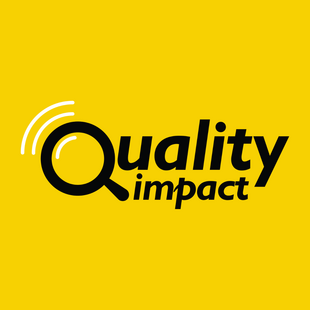
The recalibration of globalisation
Progress indicator

Ian Rosam CQP MCQI, Chief Product Officer at DeepFathom and a member of the CQI’s Audit special interest group, examines the role of auditing risk in the era of recalibrating globalisation.
In recent years, the global economic landscape has been undergoing a significant transformation. The era of hyper-globalisation, characterised by free trade, open markets and seamless supply chains, is shifting towards a more balanced approach – a recalibration of globalisation, rather than its complete disintegration.
This new paradigm is defined by regionalisation, strategic re-shoring, and adaptive trade policies that seek to balance global interconnectivity with national interests. As businesses restructure their supply chains and navigate evolving regulatory environments, the role of auditing risk becomes increasingly critical.
This recalibration gives first-, second- and third-party auditors the opportunity to reassess traditional frameworks, develop new approaches to evaluating risks, and ensure organisations maintain their operational capability and ability to meet stakeholder expectations in a dynamically shifting global economy.
The drivers of globalisation recalibration
Rather than a full retreat from globalisation, organisations are shifting towards a more strategic and resilient global model.
Several key factors are driving this recalibration.
- Geopolitical tensions: Trade disputes between major economies, such as the United States and China, have resulted in new tariffs and trade barriers. Governments are increasingly focused on securing national interests while still participating in global markets.
- Supply chain optimisation: The Covid-19 pandemic exposed vulnerabilities in long, complex supply chains. Many businesses are diversifying and regionalising supply networks to enhance resilience, rather than withdrawing from global trade completely.
- National security and strategic industries: Governments are prioritising domestic production for critical goods, such as semiconductors and pharmaceuticals, while maintaining international trade partnerships.
- Technological advances: Innovations in automation and artificial intelligence are reducing the cost advantages of offshore production, allowing businesses to optimise production locations without abandoning international operations.
- Sustainability and corporate responsibility: Environmental concerns and ethical sourcing requirements are prompting businesses to reassess their global footprints, leading to more sustainable and regionally balanced supply chains.
Impacts on organisational capability
The recalibration of globalisation presents challenges and opportunities. Organisations must refine their strategies in several key areas.
- Supply chain resilience: Rather than fully localising supply chains, businesses are focusing on diversification, regional hubs and strategic partnerships to balance efficiency and risk.
- Cost management: Adjustments in trade policies and tariffs require companies to optimise cost structures through smarter procurement and process efficiencies, rather than relying solely on low-cost global suppliers.
- Innovation and market adaptation: Companies must invest in innovation to create adaptable business models that thrive amid shifting trade policies and economic uncertainties.
- Workforce evolution: As production and operations become more regionally distributed, workforce planning must adapt to ensure talent availability and skills development across multiple geographies.
- Regulatory and compliance strategies: Businesses must stay ahead of evolving trade regulations, customs requirements and regional compliance frameworks, while maintaining global operations.
The role of auditing risk in a recalibrated global environment
As organisations adjust their global strategies, auditing risk must also evolve. Auditors need to rethink traditional auditing methods and implement a more dynamic approach to evaluating risks in a recalibrated global economy.
- Identifying and assessing emerging risks: Auditors must assess risks related to supply chain shifts, regional economic policies and evolving regulatory landscapes. Risk assessments should move beyond static compliance checks to proactive scenario analysis.
- Enhancing supply chain transparency: Greater visibility and accountability in supply chains are essential. Auditors should focus on evaluating supplier reliability, tracking environmental and ethical sourcing compliance, and ensuring business-continuity strategies align with shifting global trade patterns.
- Adapting financial and risk controls: With cost structures changing because of shifting trade policies, auditors must evaluate pricing strategies, assess currency fluctuation impacts, and ensure financial reporting reflects new operational realities.
- Ensuring regulatory compliance in a changing landscape: Businesses operating across multiple jurisdictions must navigate evolving trade agreements, tax policies and industry regulations. Auditors play a crucial role in monitoring compliance and mitigating exposure to legal and financial penalties.
- Supporting strategic decision-making: Auditors must shift from traditional retrospective audits to a more forward-looking advisory role. By leveraging data analytics, risk modelling and market insights, they can provide organisations with strategic guidance to navigate the complexities of a recalibrated global economy.
Maintaining stakeholder confidence
As globalisation recalibrates, maintaining stakeholder confidence is paramount. Investors, customers, employees and regulatory bodies expect organisations to demonstrate adaptability, resilience and transparency. Effective risk auditing ensures that businesses remain agile in the face of economic shifts, reinforcing their ability to meet stakeholder needs.
- Investors require assurance that businesses can navigate geopolitical risks and maintain long-term profitability, despite changing global trade policies.
- Customers expect reliable access to products and services, making supply chain stability a key priority.
- Employees rely on job security and career development opportunities, requiring organisations to adjust workforce strategies to regional economic conditions.
- Regulators demand compliance with new trade agreements, tax laws and sustainability initiatives, requiring organisations to have robust auditing frameworks in place.
Key actions first-, second- and third-party auditors can take now
To proactively address the recalibration of globalisation, auditors can take the following key steps:
- Develop new risk-assessment models: Incorporate geopolitical, economic and supply chain factors into auditing frameworks, to ensure a comprehensive risk evaluation.
- Enhance use of data analytics: Leverage data-driven insights to improve audit accuracy and provide forward-looking risk assessments.
- Strengthen collaboration with management: Work closely with business leaders to integrate auditing insights into strategic decision-making.
- Expand knowledge of trade regulations: Stay updated on evolving trade policies and compliance requirements, to guide organisations effectively.
- Adapt auditing approaches to regionalisation: Adjust audit methodologies to account for diversified supply chains and regional operational strategies.
Conclusion
The recalibration of globalisation presents challenges and opportunities for organisations worldwide. Rather than a complete disintegration of global trade, businesses are adopting a more strategic approach that balances global connectivity with regional resilience.
Auditing risk plays a crucial role in this transformation, requiring auditors to rethink traditional methods, enhance transparency, and provide strategic insights that help businesses adapt. By proactively identifying risks, ensuring compliance and supporting decision-making, auditors contribute to organisational stability and long-term success in an evolving global landscape.
Should auditors focus more on human behaviour and how could this be measured?
Internal auditing faces a dilemma. As auditors seek to audit or assess their management system, processes and procedures, they are constrained by the traditional methods used to generate the collection of objective evidence needed.
Quality World

Get the latest news, interviews and features on quality in our industry leading magazine.
Become an event partner for Quality Live 2025
Raise your organisation's profile with our audience of international quality and auditing professionals
The latest from the CQI Podcast

Listen to the Quality Impact podcast, where experts share insights on the evolving role of quality across industries.


